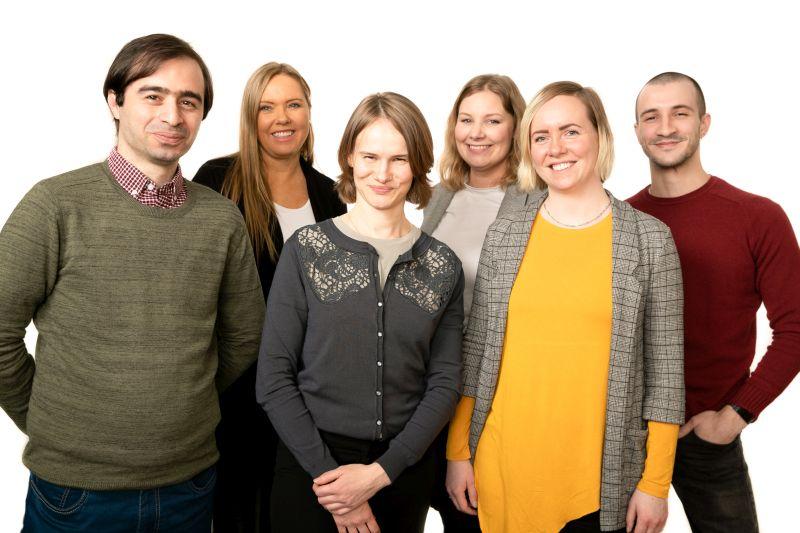Meet our PhD candidates
Meet the Excited PhD candidates

Abdullah Bahmani joined Excited in 2018 and has a background in software engineering from Iran. He is interested in organizational change, particularly at higher education institutions and how it could be facilitated by providing research-based guidelines.
In 2019 he presented four papers on national and international conferences about multi-campus education. Recently, he also developed a conceptual framework for multi-campus course development. This project has a paper accepted in the EDUCON 2020 conference. Moreover, he is also working closely with two study program leaders in Trondheim and Gjøvik who started the development and establishment of a multi-campus study program at NTNU.
Ongoing research now is on measuring teacher’s readiness for multi-campus activities, with a survey for the target group. We aim at making this study and their answers relevant for university policymakers to take relevant actions. In addition to that, Abdullah is working on a systematic mapping review for categorizing the current literature in the applied area to identify the gaps there.
Justyna Szynkiewicz has an MA in Social Policy 2012, MA in International Economic Relations 2013, University of Bialystok, Poland
Her PhD work is focused on project-based learning university courses where students create IT artifacts. She is interviewing university students about their experiences in project courses and try to understand how they are affected by these experiences. Justyna is interested in computing culture, values, norms and other tacit elements of learning, as well as in computing identity that is developed by students, teachers, faculty members and other stakeholders.
Her work is influenced by work of Vygotsky, Piaget and Papert. Justyna views learning as a social, collaborative process where students gain competences beyond disciplinary content knowledge. She believes that the role of education is not only to prepare students for work in the industry but also to help them become reflective and ethical citizens that care about the wellbeing of our societies and planet. The results of her PhD could support the courses design as well as curriculum development.
Phd candidate Vojislav Vujošević joined Excited in 2018 and has a background in psychology. He has a Masters in Cognitive Systems and Interactive Media from Spain.
During his PhD, Vojislav has been working on pre-university computing education, with the focus on teachers in Norway. One of the main interests in his research project were exploring how the teaching process could be improved beyond the curriculum. Addressing teaching itself in computing is deemed important because of the lack of structured curriculum, teaching guidelines, community support and very fast changes in the field of computing. He explored how could Reflection and Cooperation (in classroom and between teachers) aid and improve work of computing teachers. Ultimately it is expected to contrtibute to the Community of practice for computing teachers in Norway.
Trough a systematic literature review on Identified Teachers’ competencies in computing education Vojislav explored and worked on a proposed solution of including Reflection and Cooperation into teachers’ practice based on current knowledge and literature. The next step is to organize and conduct interviews with teachers in local Secondary schools to map and identify problems that teachers themselves identify.Based on progress and knowledge obtained and created during previously mentioned actions we hope to have a more permanent solution and intervention for computing teachers in the following years.
Hege Annette Olstad has a master’s degree in Digital Collaboration. What competence a job applicant has is often a topic in both the job advertisement and in the job interview itself. However, students find it challenging to understand what they are capable of when they enter the job market after higher education. How can they transform their competencies into meaningful knowledge with regard to self, academia, and career development?
Competence is an essential theme of the P5 project, which aims to strengthen the education-work connection. Heges research focuses on how to create awareness among students on gained competence by introducing ePortfolio, and analyses if ePortfolios can create awareness among students on gained competencies and how to implement ePortfolio without leading to increased workload for learning institutes and teachers.
Gunhild Lundberg has her master degree in Digital Collaboration and has completed her PhD with Excited. Lundberg was researching the transition from Higher Education to employment for IT-students more specifically on how to ease the transition to employment. She broadened the term employability from including skills, knowledge, and personal attributes, to also include identity formation and awareness of employment possibilities.
She used interviews and questionnaires to collect data from students and alumni from a computer science department, as well as the employers who hire these graduates. This gave insight to both the employer and the (future) employee perspective. By broadening the employability term, higher education must emphasize the development of not only skills, knowledge and personal attributes, but also identity formation and providing students with relevant information about their possibilities and what a career within computer science could be. This helps making students more career-ready and able to put their curricula in a bigger context.
Read more about Lundberg' doctoral thesis "Employability as Identity Formation – the Transition of Computing Graduates From Higher Education to Employment"
Madeleine Lorås has a Master in teaching education with a computer science and mathematics specialization and has completed her PhD with Excited. During her PhD project Lorås was working on undergraduate computing students and their study behavior. Her focus was primarily on the first year of higher education and how the students develop their study habits, skills, strategies and tactics in order to someday become computing professionals with the skills and competencies to tackle future challenges.
Through interviews, surveys and questionnaires, Madeleine was tracking students’ progression though the first year. Her results indicate that they come into higher education with various backgrounds and previous experience, and in turn will develop their study behavior throughout the first year. Furthermore, computing students’ study behavior is heavily reliant on independent studying, often alone at home. These results inform the development of first year courses, as well as study program and curriculum design.






